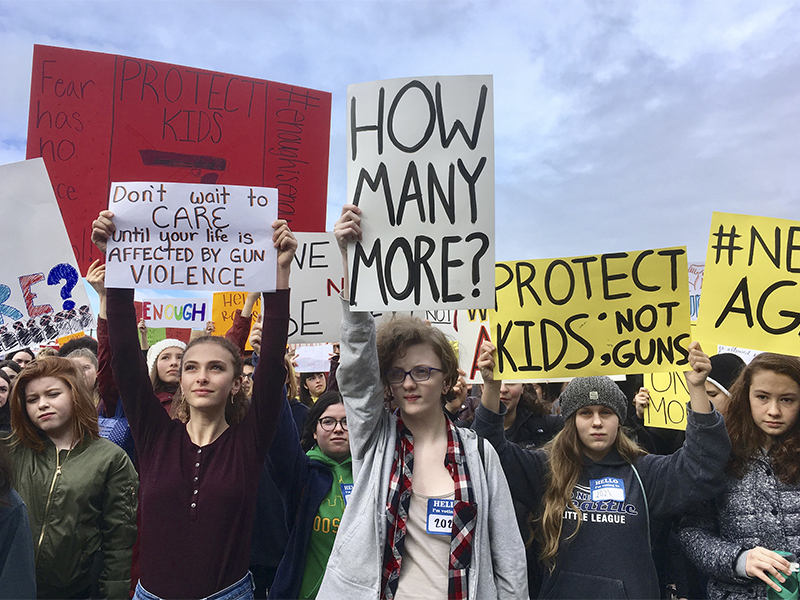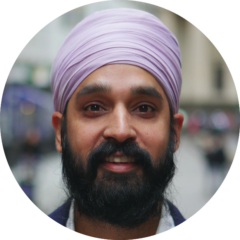(RNS) — Two days before Trump was elected in 2016, I ran the New York City Marathon. At multiple points along the route, spectators pointed to my turban and shouted hate speech. One volunteer refused to serve me water, calling me “a filthy Muslim.”
I saw clearly that day what many of us see clearly now — that if Trump were elected, things would get a lot uglier. I also knew that for those of us already vulnerable to racist hate, contending with white nationalism would be a literal fight for survival.
The past four years have confirmed those expectations. Our nation is divided and fractured, its integrity crumbling. As a casual glance at the paper or your social media feed will tell you, our country is at a dangerously polarized moment. The Republican National Convention was full of fear and warning about change, while the Democrats emphasized light, love and hope.
We can’t be surprised at the Trump campaign’s unrepentant focus on what divides us rather than how we can work together. Since he announced his candidacy in 2015, claiming that Mexico sends its worst people to live in America, Trump has been attempting to turn this country against itself. It has used fear of others, of outsiders, in an attempt to get Americans — especially white Americans — to pull up the gates not only to immigrants but also to Americans who don’t look like they do or think like they do.
This divisiveness is folly. Our country faces many legitimate challenges, too many to name here. Social and technological changes have arrived and are continuing to arrive, both bringing fresh opportunity and exposing weaknesses of our political and economic systems. But we are all in this country together, and America needs to draw on its diverse strengths to solve the problems that we all confront.
As a Sikh teaching at Union Theological Seminary, I understand how we can learn from each other. My own upbringing is different from most of those whom I teach and work with, but my faith has been enhanced, not weakened, through these interactions.
Much has rightly been made about the selection of Kamala Harris as the first Black and South Asian woman to be nominated on a major party ticket. In addition to the racial and gender diversity, Harris has roots in both the historic Black church and in Hindu worship, while Joe Biden brings a Catholic perspective to public life. At the Democratic National Convention, speakers from a variety of backgrounds offered a unified vision of how to move forward together.
Race and national heritage is just one form of diversity. Diverse cultural traditions and religious traditions, it has been shown, can solve difficult problems, bringing fresh ideas and new solutions. That’s why I recently joined an interfaith initiative affiliated with Everytown for Gun Safety that’s focused on electing leaders at every level of government who will work to make our communities safer.
Gun violence threatens all Americans, and mass shootings have happened in homes, workplaces, marketplaces, schools and houses of worship. We know that too little is being done and that blaming people who don’t look like us, think like us or worship like us doesn’t get us any closer to safe, healthy neighborhoods. We need to work across dividing lines to make a difference. Gun violence is just one of countless examples of problems that can be solved by working together to undo our poisonous politics on issue after issue.
Some may dismiss the idea of a unifying politics as mere pablum, an empty promise. But even those who have lost faith in government can work together outside the political realm to bring their unique talents and viewpoints to bear on the problems our nation faces.
We can’t do it, though, as long as our politics remain actively corrosive to American civil and religious life. This November, I won’t be running in the marathon because of the pandemic. I’ll be spared that glimpse of the scapegoating and blaming of those who aren’t just like us that I experienced four years ago. But I’ll also miss seeing my diverse neighbors flash by as I pass through every one of New York’s polyglot boroughs, thinking how all of us together have a chance to choose to do something different and build something new together.






